Wondering whether you need a CPU cooler or not? This question might have popped up to every new computer user. Usually, a cooler or heat sink is required in order to absorb the radiating heat from the processor.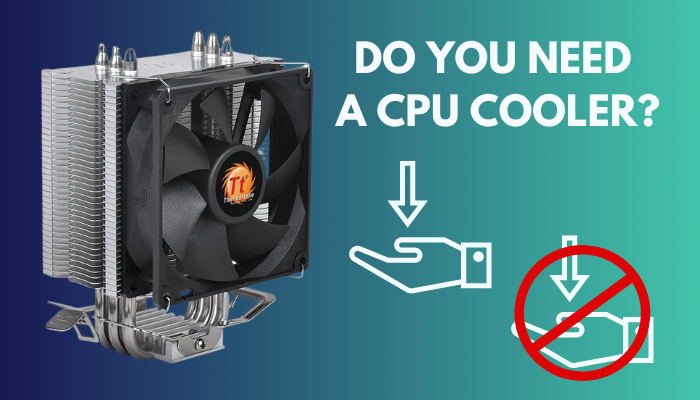
But do you need a fancy CPU Cooler or not is the central question you should be figuring out. But worry not; I have gathered some critical information to answer every question you have been wondering about.
Keep reading without missing a bit.
Shall we begin?
Do You Need A CPU Cooler?
Yes, you generally need some type of CPU cooler on your motherboard to prevent the CPU from overheating. Because without a Liquid or Air Cooler, the computer will shut down after reaching a certain level of heat. So you need a CPU cooler, and it’s a necessary part of the computer system.
The CPU cooler is an essential part of the hardware that is a must to have. Without it, you will risk your CPU being damaged or burning the whole Computer system.
Usually, almost every Processor or CPU comes with an Air Cooler and heat sink. It is enough for everyday usage, but changing or upgrading the CPU would be the best option for you if you are a heavy user.
Whether you need a better CPU Cooler is the question that should be asked right now.
Related contents you should read about fix CPU temp jumping up and down.
Do You Need To Upgrade Your CPU Cooler?
The answer to this comes with two questions itself.
- How good is your current CPU Cooler?
- Is your current CPU Cooler enough for your CPU?
Typically people use the stock CPU Cooler that you get free with the processor. It doesn’t need to be changed because Brands manufacture them considering the heat processor will generate.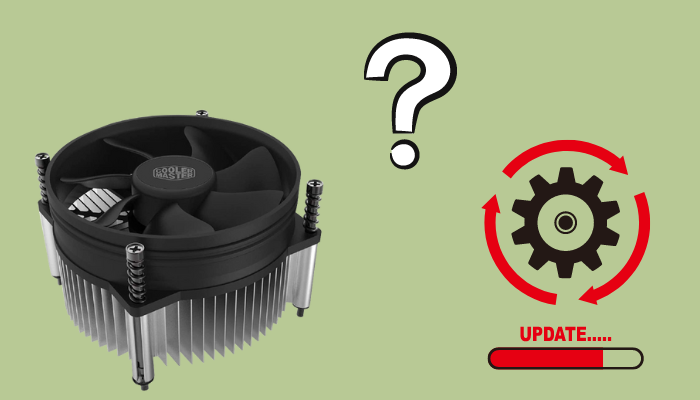 But if your computer is radiating an abnormal amount of heat, then you should change the Cooler with a new one.
But if your computer is radiating an abnormal amount of heat, then you should change the Cooler with a new one.
A CPU Cooler’s duty is to keep the processor at normal heat as much as possible, but if it fails the primary responsibility, it’s necessary to change the Cooler and get a new one.
Moreover, you should know that AMD’s processors are known for generating more heat than Intel’s processors and not only that, every high-end processor, whether AMD or Intel, needs a better cooling system to keep them cool all the time.
I would suggest you get a Liquid cooler if you own a high-power AMD processor or your intent is to play games/ do heavy work with your computer system.
But before getting any CPU Cooler, ensure that your CPU and Motherboard are compatible with each other. You have to take four things into consideration.
- CPU Socket: Ensure that the new CPU cooler can be mounted with your CPU Socket and can be appropriately adjusted.
- CPU Thermal Design Power (TDP): Ensure your new CPU Cooler is strong enough to keep your processor cool. TDP is the highest amount of heat a CPU radiates from them. The TDP of your CPU and Cooler should match each other.
- Noise Level: Loud fan noise is disturbing, specifically when you are gaming or trying to focus on your work. Try getting a Cooler with a larger fan, and it will create less noise than the smaller ones.
- Size And Clearance: Ensure how much empty room you have in your CPU casing before deciding on any CPU cooler. Too large cooler won’t be able to fit, and you might have to leave the case panel open.
Plus, a large cooler will make your life difficult every time you try to install RAM or CPU in their respective slots.
Types Of CPU Coolers
In the current market, there are two types of CPU Coolers available. One is an Air cooler, and another is Liquid Cooler. Both of the coolers control heat from the processor by channeling the heat into various heat spreaders. Them being heat pipes, thermal base plates, heat spreaders and thermal pastes.
Air Coolers
Air coolers take the radiating heat from the CPU and transfer the heat through a heats ink, heat pipes, and a fan. 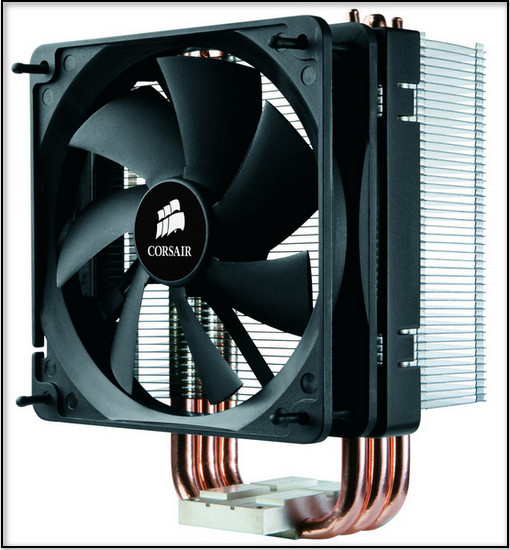
Air coolers use fans inside the case to keep the CPU cool all the time. A Desktop system has one or more fans to do their job. And usually, a cooling fan and heatsink come with every processor.
Air coolers are easy to install; you don’t need to be an expert to install them; this is the reason why air cooling systems are a favorite cooling medium.
Not to mention, They also don’t cost too much; air coolers cost less than Liquid Coolers.
One downside of the Air coolers is that the air cooler discharges the heat into the case, so the temperature rises inside the casing.
Liquid Coolers
Liquid Coolers, also known as water-cooling, came around 1997 after Air coolers failed to satisfy the overclockers. The main reason Liquid coolers started becoming popular is that not only did they do their job wonderfully, but they also generated less noise than air coolers.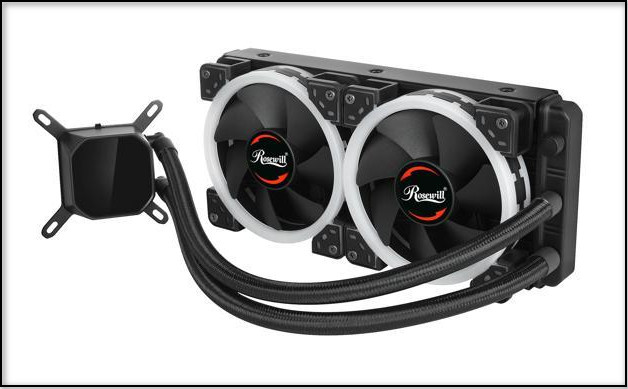 Liquid Coolers use a water block, a pump, and a radiator to keep the CPU cool.
Liquid Coolers use a water block, a pump, and a radiator to keep the CPU cool.
The water block receives cold water from the pump via tubes/pipes. Then the heat from the CPU is then absorbed by the water.
The water cooler has an advantage over the air cooler is that it can hold more heat. Because of this, it can absorb a lot more heat before the temperature rises. When the water gets warm, it passes through a powerful radiator to dissipate the heat.
And this process repeats over and over again to keep the computer cool as possible.
Liquid coolers are significantly quieter than air coolers but also cost more and are considered an expensive piece of the hardware component.
There are two types of liquid cooling:
Open-loop: Open-loop cooling system is very complicated to install in your computer system. For this, an expert is required to create water loops based on the CPU casing. And can be more expensive than the Closed-loop system.
To build an open-loop cooling system, you would need the following components:
- CPU Block.
- GPU Block.
- Fittings.
- Tubing.
- Reservoir/ Pump (with fill port).
- Compatible Case.
- Coolant.
- Tools.
- Monoblock.
- RAM Block.
- Flow Fittings.
- Drain/ Fill Fittings.
Closed-loop: Closed-loop cooling system is the popular version of Liquid cooling because typical computer consumers can install them in their system without too much hassle and extensive technical or subject expertise. Closed-loop water cooling is also called All In One (AIO) cooling.
Closed-loop cooling comes with only three parts: A water block pump combo, a radiator, and tubes. The cooling system is designed with coolant inside that flows to and from the water block and radiator, hence the name Closed-loop.
Check out the easiest way for why is my CPU at 100 degrees?
7 Reasons Why You Need A CPU Cooler
CPUs Get Hot
The CPU is known as the most crucial part of a computer that does every mathematical and arithmetical calculation.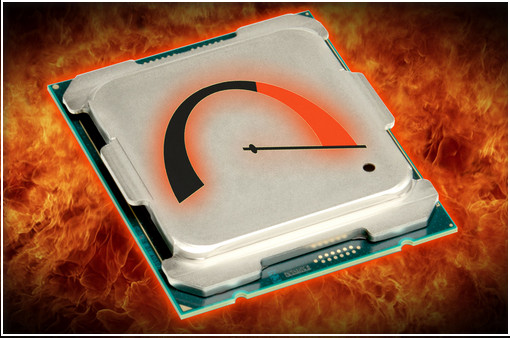
For this reason, CPUs or Processors need a constant flow of power, and electric components always generate heat; as you have seen, GPU comes with one or two fans, and RAM has its own heatsinks.
And something to mention that, A CPU can radiate more than 100W heat or above.
A Computer Is Unusable Without A CPU Cooler
Coolers are necessary for a CPU to be stable in high-performance conditions; without a cooler, the temperatures will rise and can damage your CPU, and not only that, if a cooler doesn’t match its TDP with your CPU, then it can also leave permanent damage to your CPU.
You Won’t POST Without A Cooler
Motherboard BIOS has Power-On Self-Test (POST) that ensures every hardware component is plugged in before running the computer.
In other words, Some motherboards won’t boot up the computer without a cooling system.
And you will get a beeping noise from the Motherboard.
Follow our guide to know about fix CPU suddenly overheating.
Case Fans Aren’t Enough
You will see more than one fan in the computer casing, but those are not for cooling the computer; instead, they are intended to suck out the ambient heat that other hardware generates.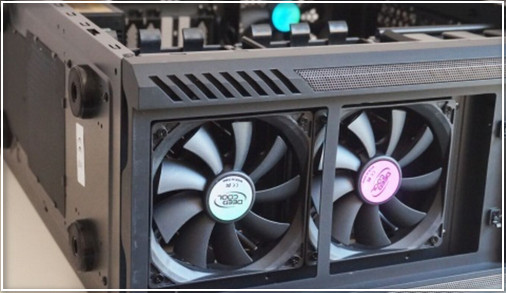
CPU Heat Can Affect Other Components
As I have mentioned, the CPU generates the most heat out of every hardware component. For this reason, every other part connected to the motherboard can get affected if the temperature in the CPU casing is not maintained well.
Heating can start a fire or burn the sophisticated hardware parts inside the computer case.
Heat Can Affect Performance
Heat affect performance is a known fact; the abnormal amounts of overheating cause issues that lift bad user experiences most notable problems that users face are:
- Random restart.
- Blue screen of death.
- Slow operation and long loading time.
- Constant crashes and freezing.
- Pixelated lines.
Your Computer Will Live Longer
Running a computer without a proper cooler would be the stupidest move; overheating affects and leaves permanent damage to the hardware components; this is the reason heatsinks and fans are already installed in some hardware components.
Without a cooler, a CPU won’t last 6 months with heavy use, and everybody should use a good cooler that will keep the system cool all time and help the longevity of other parts.
Common Reasons For High Heat
Three things can play a prominent role in overheating on a computer.
- Poor Airflow: Incorrect placement of fans and other hardware can block the airflow through the case. This sometimes also leads to the formation of warm whirlpools.
A well-designed CPU case can improve or solve this issue.
- Poor Heat Transfer: Insufficient heat transfer between components and thermal compounds causes poor heat transfer. Changing or adding thermal paste after two or three months can reduce poor heat transfer.
- Dust: Dust is the major problem for heating issues in a standard computer. Dust blocks the perfect airflow, and for this reason, many Power Supply and Motherboards get burned.
Regular cleaning of the CPU case and the air vents are recommended.
You have established that a CPU Cooler is a necessary hardware component; without a cooler, your CPU will be damaged as well as your other hardware, Motherboard, RAM and GPU, which can get burned and ruin your dream computer.
Also, check out our separate post on how to fix CPU fan not detected in BIOS?
Frequently Asked Questions
Do You Need An Expensive CPU Cooler?
Depending on your processor, if your processor generates more heat than usual, then you might need a more expensive CPU cooler to cool your computer.
How Many CPU Coolers Do I Need For Gaming?
Usually, every processor needs one cooler, and that does the job most of the time, But you can attach more cooling fans to your Computer case for better airflow.
Do I Need A Liquid CPU Cooler?
If you have a standard working computer, you might not need a Liquid CPU cooler, and most normal mid-CPU processors don’t need a Liquid cooler. But if your processor is a high-end processor and meant for intense gaming or heavy work, it would be advised to get a Liquid CPU Cooler.
Final Words
CPU Coolers play a significant role in a computer system, and a terrible cooler can become the reason for your nightmare. So every computer user should have a good and well-balanced cooler suited for heavy use and gaming.
You must get a good CPU cooler for yourself, and Hopefully, my post has given you everything you wanted to know about CPU Coolers.
For further assistance, comment below.
So long, friend!